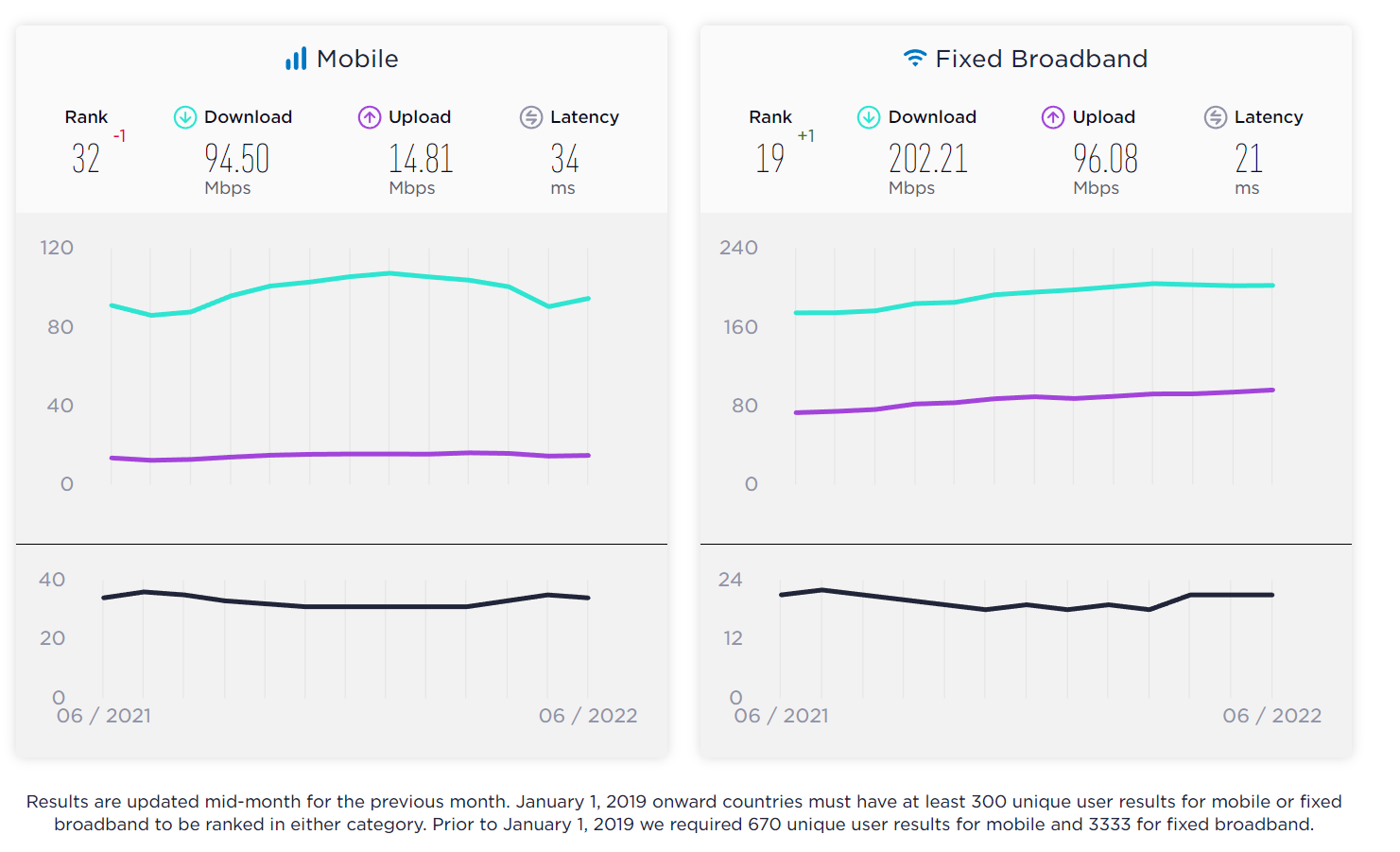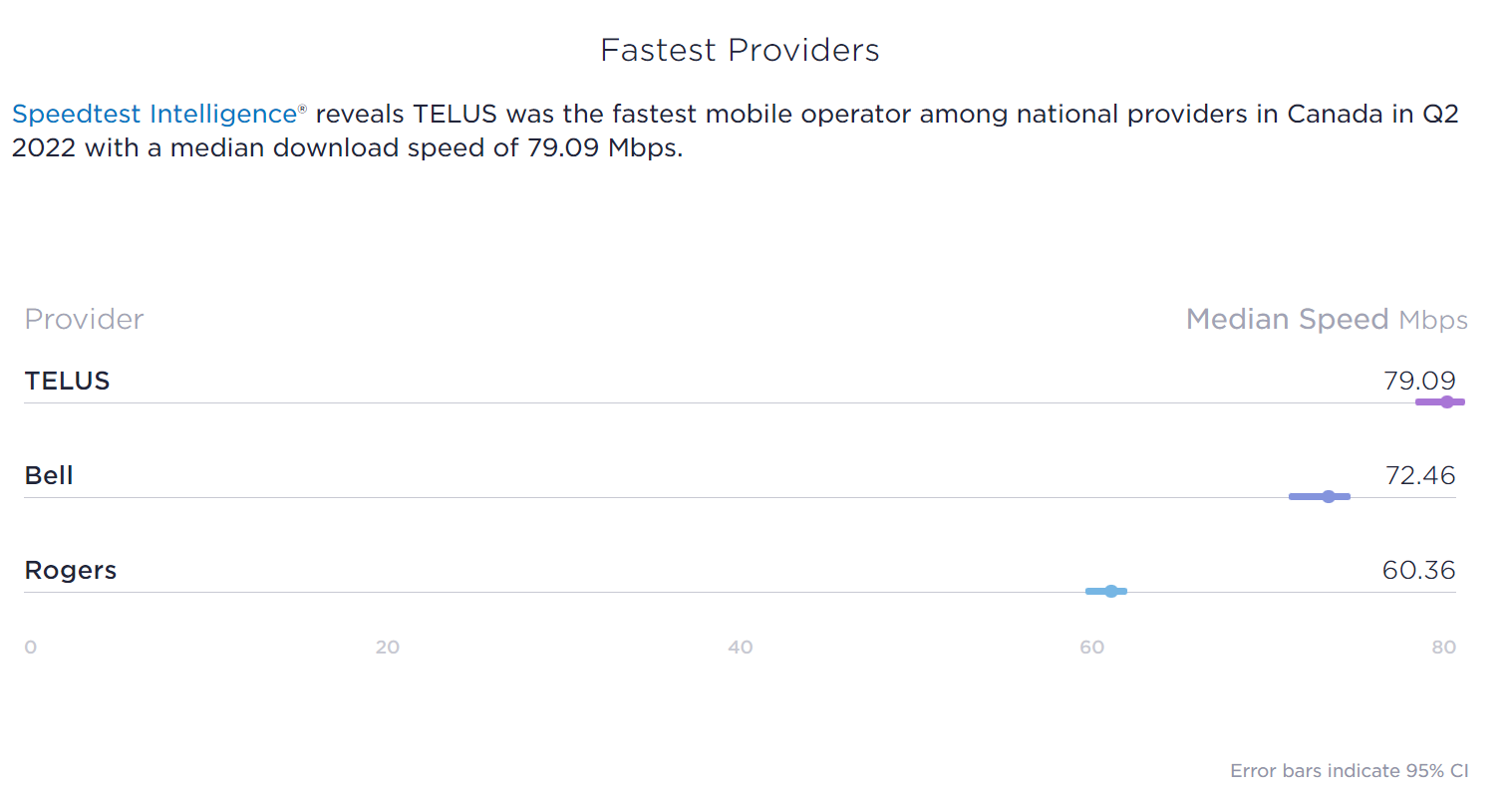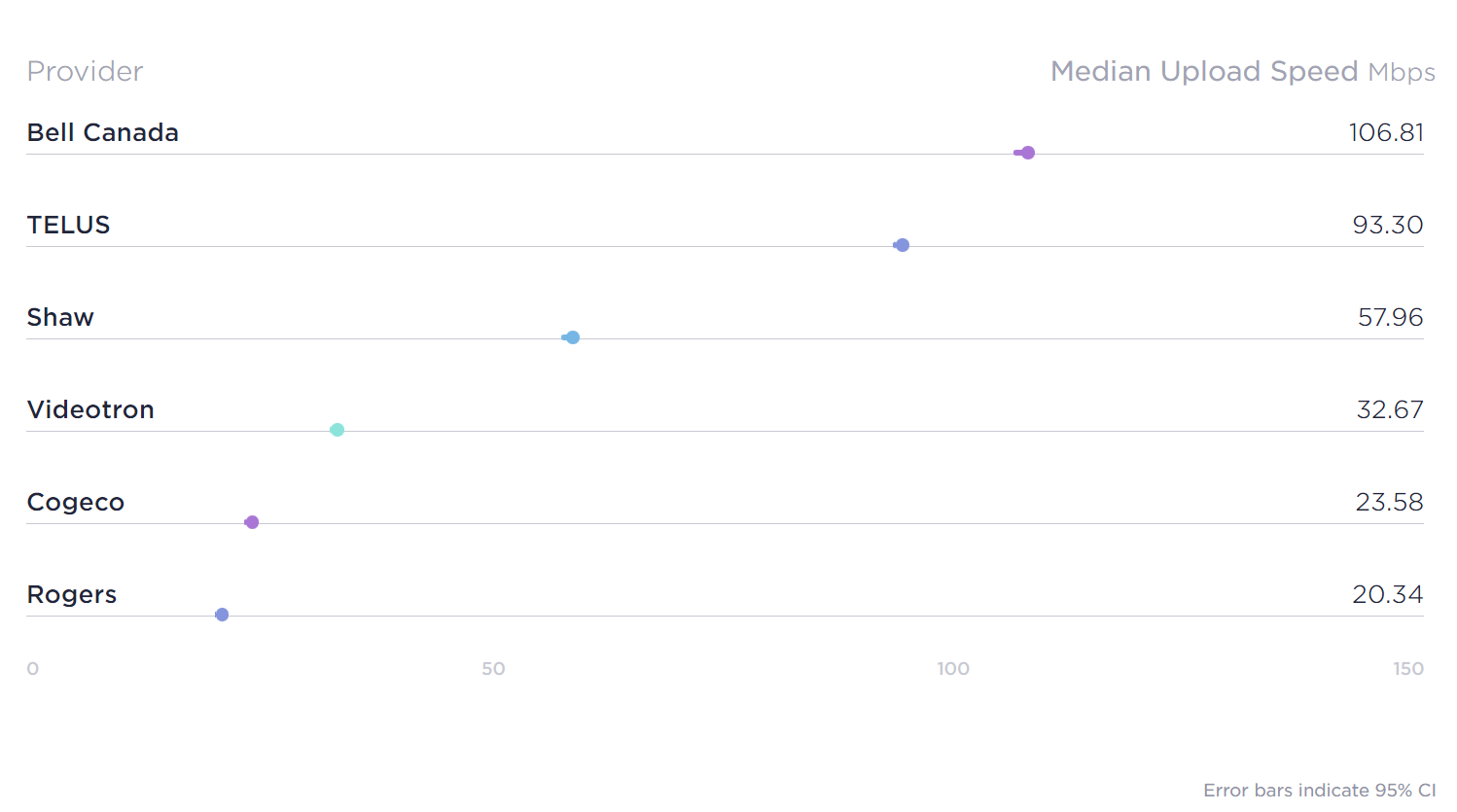Network research company Ookla has released its quarterly mobile and fixed internet analysis for Canada.
With many enterprise workplaces adopting a hybrid approach, mobile speeds are becoming increasingly important. On that front, the report showed that Canada’s mobile speeds should be adequate to support most remote work functions like Zoom meetings and remote desktop applications.
Mobile speed dips slightly
When examining the mean mobile speeds, the report revealed that the mobile download speed dipped a little since last quarter, dropping from around 103.77 Mbps in April to 94.5 Mbps in June. That’s still a little faster than the same time last year, when Ookla measured 90.97 Mbps. The upload speeds remained flat, dropping slightly from 16.13 Mbps in April to 14.81 Mbps in June. Latency saw a similar trend, measuring at just 34ms, increasing just 3ms since last quarter. Overall, Canada’s global ranking dropped by one place this quarter, to 32nd.

When ranking by median, Canada placed 24th in the world, with a median download speed of 61.52 Mbps and a 7.57 Mbps upload speed.

Telus ranked first in median download speed, clocking in at 79.09 Mbps. It is followed by Bell at 72.46Mbps, and Rogers at 60.36Mbps. But at 9.21 Mbps, Rogers had the upper hand in median upload speeds. Telus followed at 7.98 Mbps, then Bell at 7.42 Mbps. Rogers also had the lowest median latency of the three with 25ms, 1ms lower than either Bell or Telus, but the difference would be imperceptible in the vast majority of use cases, even in latency-sensitive applications such as gaming.

Canada’s Big Three tied in consistency, all scoring around 80 per cent. Ookla defines consistency as the percentage of a provider’s data samples that meet minimum thresholds for download and upload speeds. The higher the consistency, the more likely that the provider can deliver an acceptable internet experience. The overall mobile threshold is set at 5 Mbps download and 1 Mbps upload. For 5G networks, it’s set at 25 Mbps download and 3 Mbps upload.
When examining Canada’s 5G network on its own, Ookla did not specify a statistically significant winner between Bell and Telus. In this comparison, Bell and Telus would beat Rogers in 5G performance, with around 139.75 Mbps and 137.7 Mbps respectively, while Rogers should perform at around 93.06 Mbps.

Ookla measured the highest median download speeds in the country in Newfoundland and Labrador at 72.81 Mbps. Next in line was Alberta with 70.58 Mbps. It wasn’t until third place that we saw one of Canada’s populous provinces. British Columbia basically tied with Alberta at 70.42 Mbps, while Ontario placed fifth at 64.44 Mbps. Northwest Territories ranked last at just 15.28 Mbps.
St. John’s in Newfoundland and Labrador, Halifax in Nova Scotia, and Regina in Saskatchewan had the fastest mobile speeds. Toronto ranked fourth, Quebec City seventh, and Vancouver 11th. Montreal and Ottawa ranked thirteenth and fourteenth respectively.

Shaw had the fastest median broadband download speed
Both the median and mean fixed broadband download speeds remained largely unchanged from the previous quarter. In June, Ookla measured a mean broadband download speed of 202.21 Mbps, and a median download speed of 104.85 Mbps.
In this battle, Shaw emerged as the provider with the highest median download speeds with 209.44 Mbps, still leading Rogers, which had 196.94 Mbps. In third place, trailing by 60 Mbps was Bell at 137.98 Mbps. Telus came in fifth at 106.71 Mbps, behind Cogeco at 124.03 Mbps. And finally, Videotron was last at 102.56 Mbps.

However, the leaderboard is reversed when comparing median upload speeds. Bell won here with 106.81 Mbps, followed by Telus at 93.30, and Shaw at 57.96Mbps. Rogers came in last at 20.34 Mbps.

All of Canada’s fixed broadband providers demonstrated excellent latency performance. Bell, the winner in this category, had just 5 ms. Even Videotron and Cogeco, which tied for last place, only had 14ms. Additionally, all providers had highly consistent service, ranging between 88.6 per cent (Rogers) to 82.9 per cent (Bell).
Fredericton, New Brunswick’s capital city, had the highest median download speeds at 192.16 Mbps, taking a slight lead against the close second, St. John’s, which had 185.77 Mbps. Toronto found itself in seventh place with 137.53 Mbps, and Vancouver at 121.43 Mbps. They ranked higher than Ottawa and Quebec, which had 117.40 Mbps and 107.24 Mbps respectively.

